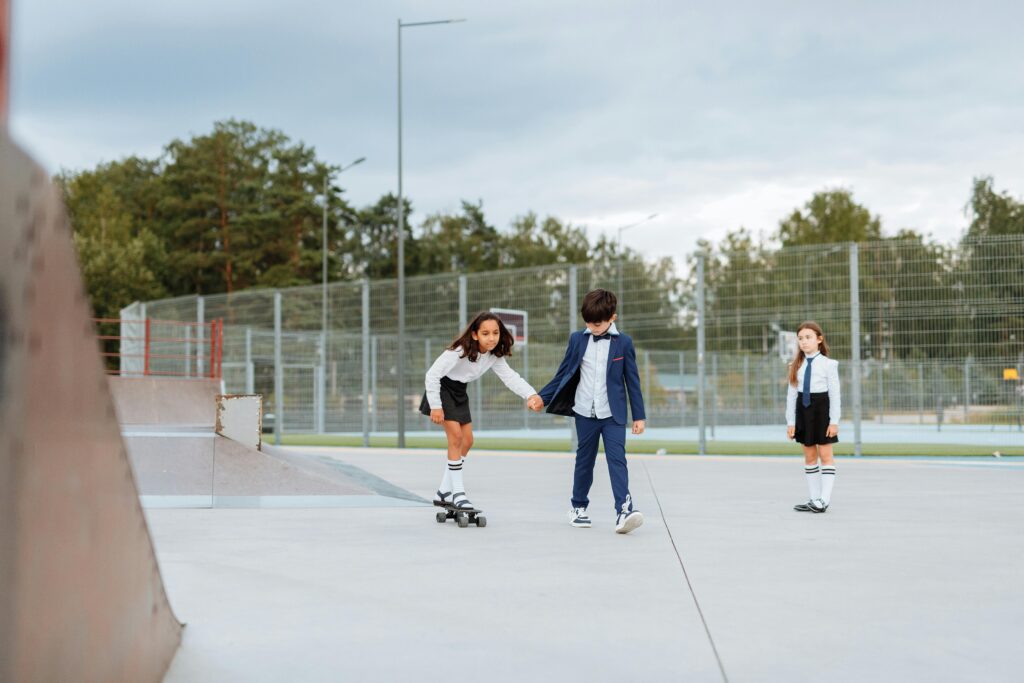Making friends is an essential part of childhood development, contributing to emotional growth, self-esteem, and social skills. In 2024, helping children make friends is more crucial than ever, especially with the growing use of technology and changing social dynamics. As parents and educators, fostering these connections can be challenging, but with the right strategies, children can build meaningful, lasting friendships. Helping Children Make Friends is essential for their emotional and social development. By providing opportunities for social interaction, parents and educators can play a crucial role in helping children make friends.

Why Friendships Matter for Children
Friendships play a vital role in a child’s emotional well-being. They offer emotional support, teach social norms, and help children develop communication skills. Children with strong friendships tend to do better academically and feel more confident in their abilities. Encouraging these relationships can lay the foundation for their future interpersonal success.
Encouraging Social Interactions
One of the best ways to help children make friends is by encouraging regular social interactions. This could include arranging playdates, enrolling them in extracurricular activities, or allowing them to join group settings like sports teams or clubs. These environments provide opportunities for children to interact with peers and develop their social skills in a natural setting. Encouraging empathy, kindness, and effective communication are important strategies in the process of helping children make friends.
Teaching Social Skills
Helping children make friends also involves teaching them essential social skills, such as sharing, taking turns, listening, and communicating effectively. Role-playing scenarios at home can help children practice these skills. Additionally, teaching empathy and kindness can make a significant difference in how they relate to others and form connections. Balancing screen time with real-world activities also aids in helping children make friends in various social settings.

Balancing Technology and Social Time
In the digital age, children are increasingly spending time on screens. While technology can be a tool for communication, it’s important to strike a balance between online interaction and face-to-face socializing. Helping children make friends in 2024 requires setting boundaries on screen time and promoting in-person activities where children can build real-world relationships.
Overcoming Shyness or Social Anxiety
For some children, making friends can be difficult due to shyness or social anxiety. In these cases, parents and teachers should provide gentle encouragement and support. Gradually introducing the child to smaller group settings can help ease their anxiety and make the process less overwhelming. Professional help, such as therapy, may also be beneficial in extreme cases. Overall, helping children make friends boosts their self-confidence and prepares them for future relationships.
Strategies for Helping Children Make Friends in Different Situations
Helping Children Make Friends in Kindergarten
In kindergarten, children are just learning to socialize. Encourage playdates, model positive social interactions, and teach sharing and empathy to help your child make friends. Group activities in a fun, structured environment also provide opportunities for kids to connect.
Helping Autistic Children Make Friends
For autistic children, socializing can be challenging. Focus on structured social situations with clear guidelines and encourage participation in small groups. Social stories and role-playing at home can also help prepare them for interacting with peers.
Helping Young Children Make Friends
At a young age, play is the main way children connect. Offer opportunities for group play, encourage cooperative games, and teach basic communication skills. Be patient and supportive as they learn how to navigate friendships.
Helping Introverted Children Make Friends
Introverted children may prefer smaller, quieter settings. Respect their need for downtime but also provide one-on-one play opportunities where they can build friendships without feeling overwhelmed.
Helping an Only Child Make Friends
Only children may need extra support in socializing. Organize frequent playdates, enroll them in group activities, and encourage participation in team-based sports or clubs to foster peer connections.

Conclusion
In conclusion, Helping Children Make Friends is a vital aspect of their overall growth and development. By fostering empathy, communication, and providing opportunities for social interaction, parents and educators can actively support this process. The journey of Helping Children Make Friends not only builds their confidence but also equips them with essential social skills for the future. Creating a nurturing environment where they feel safe and encouraged to form connections is key to Helping Children Make Friends successfully. Ultimately, positive friendships will enhance their emotional well-being and help them thrive in life.
FAQs Helping Children Make Friends:
1. What should I do if my child only makes friends with older children?
It’s common for children to befriend older kids, but it’s important to monitor the relationship. Encourage diverse friendships by providing opportunities to interact with peers their own age.
2. How can I support my child when a friendship ends?
Teach your child resilience and emotional coping strategies. Help them understand that friendships can change, and encourage them to build new connections.
3. Can structured activities like sports help my child make friends?
Yes, structured activities like team sports or group classes can provide a safe and supportive environment for children to meet peers and build friendships.